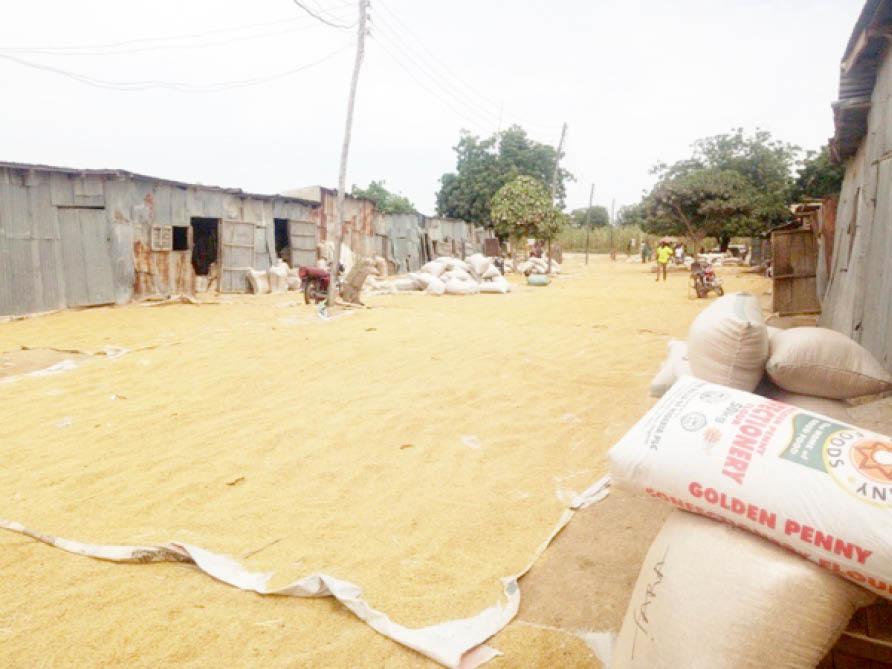Kano welcomes 6 new small-scale rice mills
Six rice mills have been established under the Kano State Agro-pastoral Development Project (KSADP) funded by the Islamic Development Bank (ISDB) and other donor agencies as measures to empower women, encourage self-reliance, as well as improve their economic status. This was disclosed by the Sasakawa Africa Association (SAA) and KSADP project coordinator, Abdulrasheed Hamisu Kofar […]

Rice paddy ready for processing at Bunkure modern rice market
Six rice mills have been established under the Kano State Agro-pastoral Development Project (KSADP) funded by the Islamic Development Bank (ISDB) and other donor agencies as measures to empower women, encourage self-reliance, as well as improve their economic status.
This was disclosed by the Sasakawa Africa Association (SAA) and KSADP project coordinator, Abdulrasheed Hamisu Kofar Mata during a strategic innovation planning meeting organised for stakeholders under the project monitoring unit (PMU), that include the Kano State Agricultural and Rural Development Authority (KNARDA), Ministry of Agriculture, Institute for the Semi-Arid Tropics (ICRISAT), International Institute of Tropical Agriculture (IITA), banks, off-takers and agro seeds companies, with a view to reviewing the project’s last progressive report.
- Banditry: Coalition asks Kebbi to establish security outposts in schools
- A day with 48-year-old physically-challenged Abuja mason
He said the project was aimed at enhancing crop productivity, as well as improving the whole agricultural value chain and livestock activities to minimise or wipe out incessant farmers-herders clashes.
He explained that the SAA as one of the key partners which role is on some selected crops, has made several efforts to transform the agric sector in the state through bridging the gap between stakeholders and creating synergy with farmers.
Similarly, in his remark, the managing director of KNARDA, Dr Junaidu Yakubu, said the SAA had been doing very well, and that in its first year it was able to exceed its 112,000 targeted farmers to 114,000. However, the country director, Professor Sani Miko, revealed that the aim of the meeting was to gather vital information that would give the project an insight on how to face the second year of the project without much hitches.
